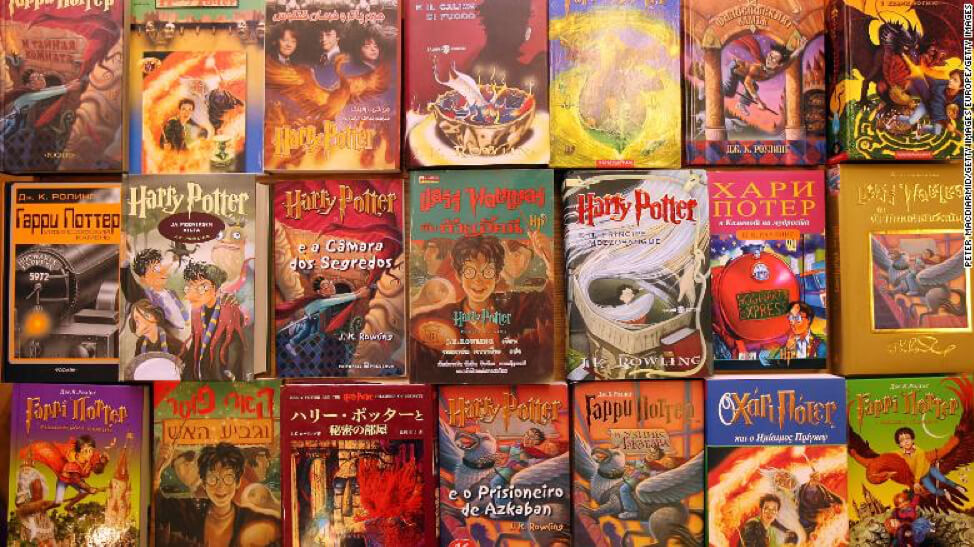Harry Potter Books Banned from Tennessee School

The popular book series is frequently surrounded by controversy amongst the religious community for its depiction of spells and curses. Photo from CNN.
Posted by Monique Freemon
A Catholic school in Nashville, Tennessee has removed the “Harry Potter” book series from their library, according to The Tennessean.
Rev. Dan Reehil, a pastor at St. Edward Catholic School, was concerned over the depictions of magic in the books. After consulting with exorcists in the U.S. and Rome, he decided to remove them.
The Tennessean published part of Reehil’s email further detailing his decision, “These books present magic as both good and evil, which is not true, but in fact a clever deception. The curses and spells used in the books are actual curses and spells; which when read by a human being risk conjuring evil spirits into the presence of the person reading the text.”
The news publication stated Rebecca Hammel, the superintendent of the schools for the Catholic Diocese of Nashville, confirmed Reehil’s email since he was unavailable for comment. The decision has received negative and positive support via social media.
The post volume following the article’s publication was 45,000 with most posts coming from Twitter by 97 percent. The top four countries with the most mentions were the U.S. (58.4 percent), Unknown (29.2 percent), Canada (3.9 percent), the U.K. (3.3 percent) and Australia (1.3 percent).

After The Tennessean published the article, many took to Twitter and other social media platforms to discuss the controversy. Photos from Adam Brown Social Media Command Center Social Media Studio.
Past Controversy
Since 1997, the “Harry Potter” series has been frequently scrutinized by religious groups. According to The Office for Intellectual Freedom of the American Library blog, many arguments asserted, “Harry Potter glorified magic and the occult, confusing children and leading them to attempt to emulate the spells and curses they read about.” The sentiment score for the current controversy was 60.7 percent negative and 15.2 percent positive.

There were a mixture of reactions for and against the parish school’s removal of the beloved series. Photo from Adam Brown Social Media Command Center Social Media Studio.

Many Twitter responses were against the banning of the series at St. Edward Catholic School, but a few supported the Reehil’s decision. Some even brought up the U.S. should focus more on banning assault weapons than books. Photo from Adam Brown Social Media Command Center Social Media Studio.
According to Bloomsbury Publishing, J.K. Rowling, the creator of the Harry Potter universe, thought of the idea in 1990 while travelling London King’s Cross. The first book, “Harry Potter and the Philosopher’s Stone” (U.K. version) or “Harry Potter and the Sorcerer’s Stone” (U.S. version), was published in 1997. It quickly rose on the bestsellers list and was published in numerous languages. Vox cited its influence as an “all-encompassing,” “bonafide,” pop culture phenomenon.
A History of Magic
The seven-book series chronicled the magical and dangerous adventures of a 11-year-old wizard, Harry Potter, and his two friends, Ronald Weasley (a.k.a., “Ron”) and Hermione Granger. The first part of the series illustrated the trio’s experience with magic for the first time. During their first years at Hogwarts School of Witchcraft and Wizard, the trio fought a three headed dog named Fluffy, defeated a 50-foot snake and battled the soul sucking Dementors. As the series progressed, the characters matured and the content became darker. The characters dealt with love, loss, secrets and friendship. Towards the middle and later books, Harry competed in a deadly Triwizard Tournament with the help of his friends, a dark wizard returned, discovered a prophecy and solved the mystery of the half-blood prince. The series concluded with an epic battle for the wizarding and Muggle world.

Most of the reactions involving the parish school’s removal of the “Harry Potter” series were negative, but this is not the first time there has been controversy surrounding the popular books. Photo from Adam Brown Social Media Command Center Social Media Studio.
However, the ultimate goal was to defeat Lord Voldemort, a dark and powerful wizard who was bent on creating a world for pure-blood magical lines and ridding the world of Muggles (non-magical people).
Mischief Managed
Rowling’s creation was adapted into a billion dollar movie franchise (including expansion stories such as “Fantastic Beast and Where to Find Them”), theme parks in the U.S. and Japan, inspired charity organizations such as Lumos and global online communities such as Pottermore.
Millions are fascinated with the books’ sense of escapism, how to conquer one’s fears, the meaning of true friendship, embracing hope and taking action against the evils of the world.